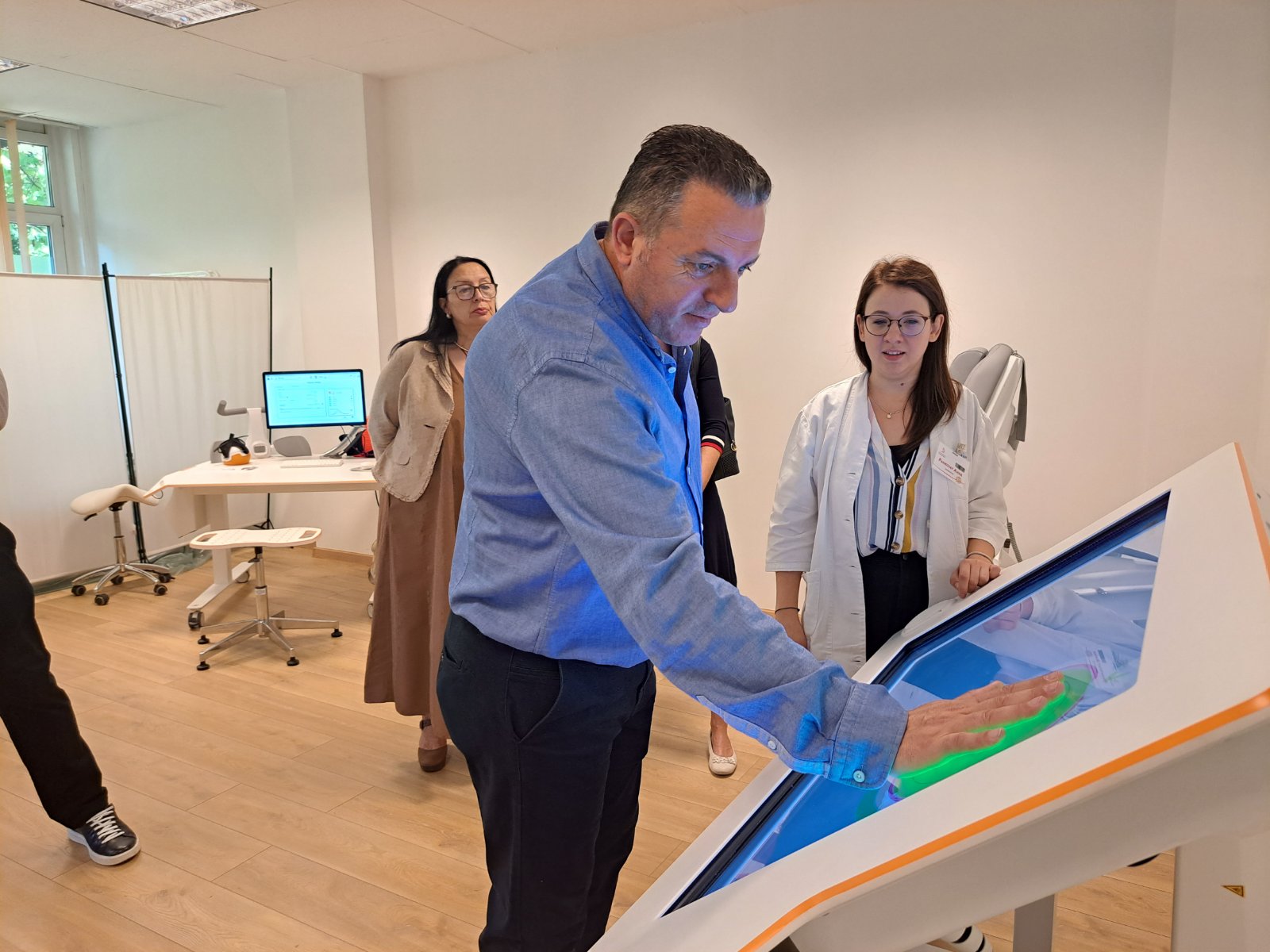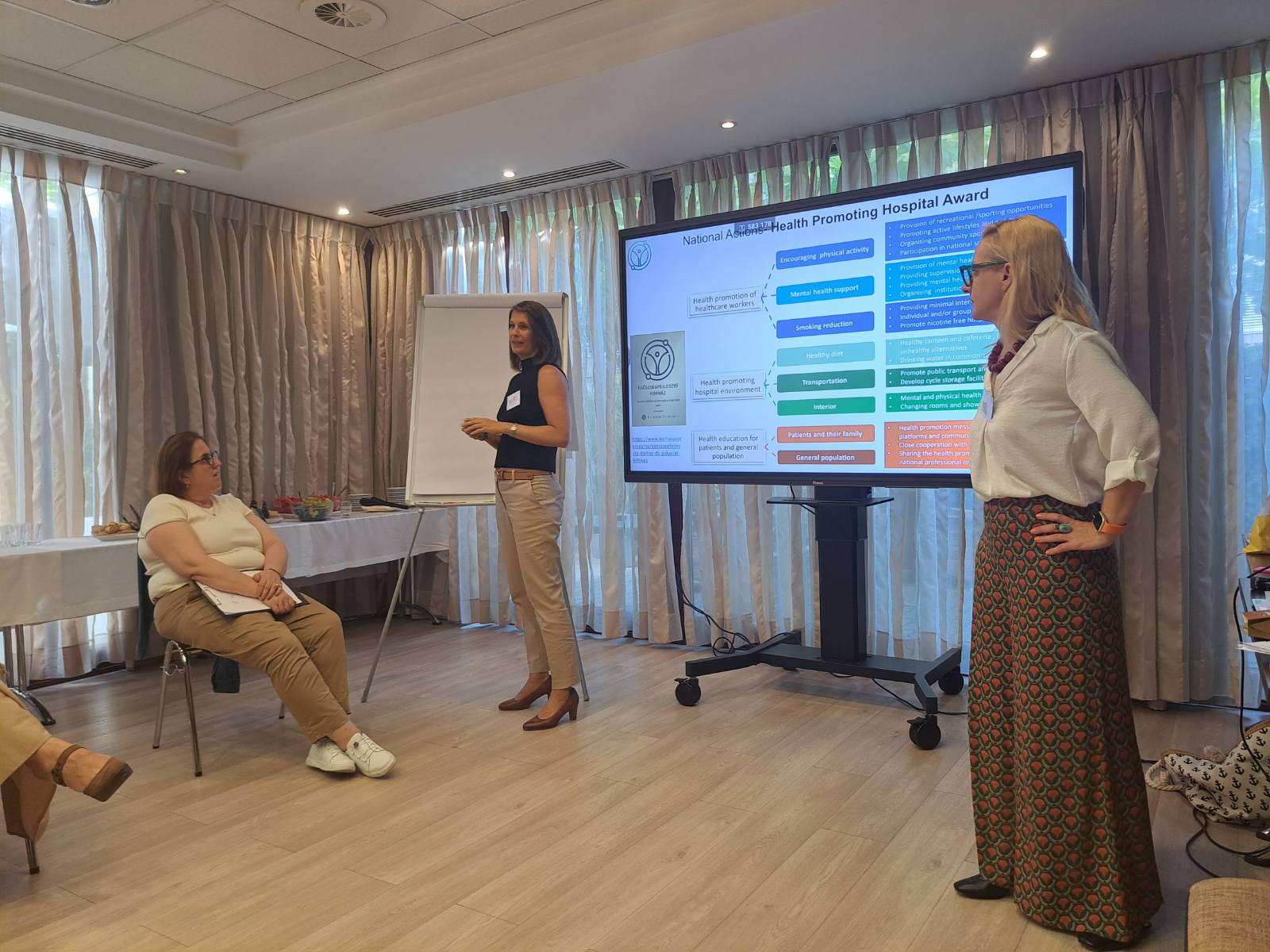Health-Promoting Hospital Network: Experience of the Delegation from Kosovo
The Health-Promoting Hospitals (HPH) concept prioritizes patient wellbeing through education, prevention, integrated healthcare, evidence-based practices, and community engagement. It brings sustainable change in healthcare delivery by empowering patients to self-manage their health.

In a step toward adopting a Health-Promoting Hospital (HPH) standards, a group of health sector leaders from Kosovo recently participated in a study visit to Hungary. Representatives from Kosovo’s Ministry of Health, the National Institute of Public Health, and the general hospitals and primary healthcare centers of Peja and Gjakova visited the Bethesda Children’s Hospital, a long-standing member of the HPH Network. The delegation returned home inspired and with a clear vision to implement similar approaches/standards as they observed in Hungary.
Non-communicable diseases, like diabetes, hypertension, and heart disease, are increasingly prevalent in Kosovo, highlighting the need for a more comprehensive, preventative approach to healthcare. The International Network of Health Promoting Hospitals and Health Services (HPH) seeks to embed health promotion values and standards into the culture of hospitals and health services, enhancing the relationship with the community.

“In hospitals that follow this model, the focus is as much on empowering patients to manage and prevent illness as it is on addressing acute medical needs,” explained Dr. Ardita Baraku, Director of the National Institute of Public Health (NIPH) of Kosovo, member of the delegation, in a podcast conversation with the Integrated Health Services (IHS) project.
Since March 2024, the General Hospitals in Peja and Gjakova have joined the international HPH network, laying the groundwork for broader adoption of these transformative practices across Kosovo.
Learning from Hungary’s Best Practices
During the visit, the hosts Dr. György János Velkey, Director General of Bethesda Children’s Hospital and Dr. Zsuzsa Rákosy-Vokó, the Head of Health Promotion, shared insights with the Kosovo delegation about Hungary’s HPH practices, including practical strategies for implementing similar initiatives back home.

“Our goal is to create a culture where healthcare doesn’t just treat illness but promotes well-being across all ages,” said Dr. Fazli Shala, Director of the General Hospital of Peja. “It’s a privilege to learn from our Hungarian colleagues and to contribute to building healthier communities in Kosovo.”
Kosovo’s health leaders observed innovative uses of technology and Hungary’s approach to accessible, preventative healthcare, particularly in underserved communities. “It was inspiring to see the use of mobile health buses that travel to rural areas to provide essential health services like blood glucose and blood pressure screenings, nutrition advice, and general health education,” said Dr. Shaban Osmanaj, Head of the Primary Healthcare Division, Ministry of Health of Kosovo.

“This kind of accessible, preventive care could make a significant impact in Kosovo, especially in remote areas where health resources are limited,” added Dr. Arben Koshi, head of Main Family Medicine Center in Gjakova.
The HPH approach also emphasizes the well-being of healthcare providers themselves. Inspired by this, Kosovo’s health leaders aim not only to transform patient care practices but also to create supportive environments for hospital staff. After all, the Health-Promoting Hospitals model is about more than just treating illness; it’s a new way of thinking about health and wellness as a shared responsibility.
Building a Health-Promoting Future for Kosovo
The study visit to Hungary marked the beginning of Kosovo’s long-term commitment to transforming its healthcare system into one that prioritizes health education and preventive care. Success will depend on a gradual but sustained adoption of HPH strategies, starting with the hospitals in Peja and Gjakova and eventually expanding nationwide. As Kosovo begins implementing these changes, patients, healthcare workers, and communities alike stand to benefit.
“Kosovo’s healthcare transformation will be a journey,” Dr. Ardita Baraku, NIPH, reflected, “and we’re starting with a strong foundation of knowledge and inspiration from Hungary. This partnership has shown us what’s possible.”

The study visit was supported by the Integrated Health Services (IHS) project, a joint initiative between the Swiss Agency for Development and Cooperation (SDC) and Kosovo’s Ministry of Health, that is implemented by the Swiss Tropical and Public Health Institute.